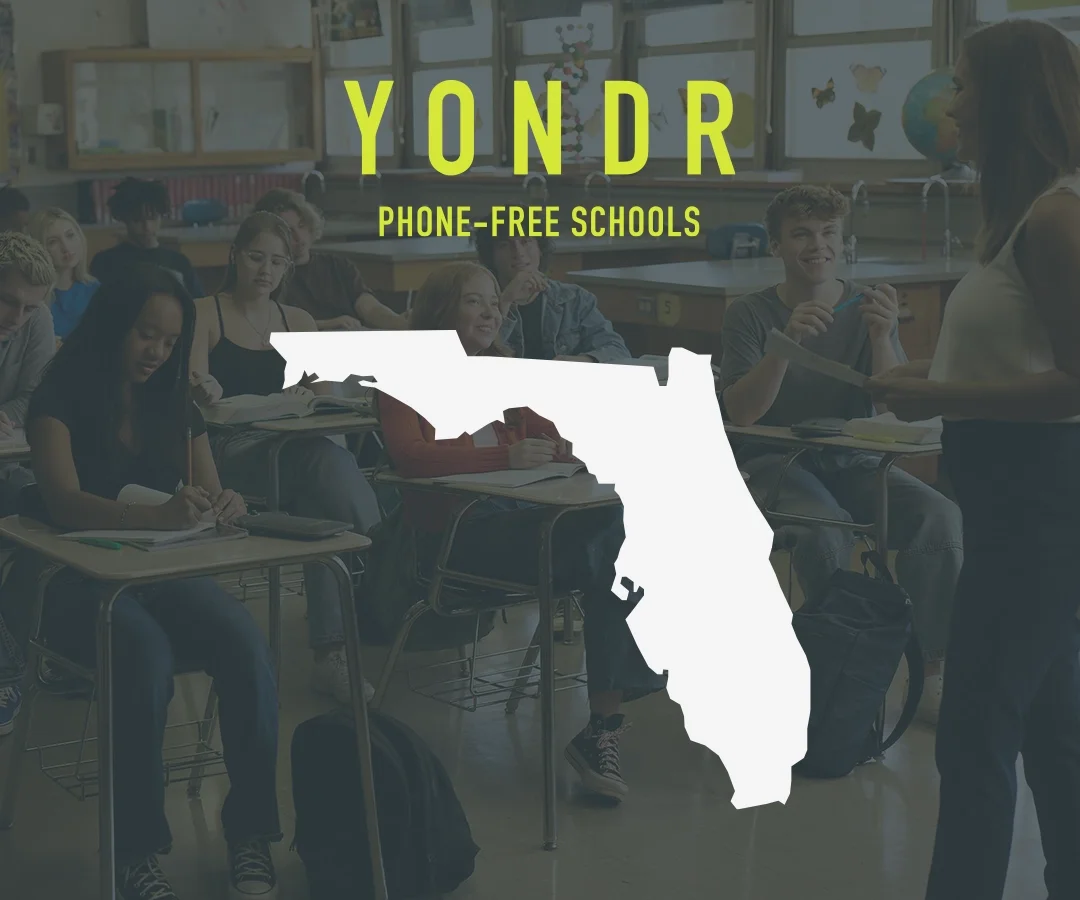Phone-Free Schools: Florida’s New Bell-to-Bell Policy Explained
In 2023, Florida became the first state to curb cell phone distractions by restricting student cell phone use during instructional time.
Now, new “bell-to-bell” legislation expands that restriction even further. As of July 31, 2025, elementary and middle school students may not use any wireless communications devices during the school day. For high school students, phones will continue to be banned during class time, but pilot programs will begin at select high schools to implement the school-day phone-free policy for older students.
The bill does not state that students may not carry phones, only that they can’t be used during the school day.
What Florida Districts Must Do by the 2025–2026 School Year
Under the HB1105 bill, Florida school districts must:
Prohibit the use of phones, electronic devices, and wireless communication devices by elementary and middle school students during the entire day
Continue to prohibit the use of wireless communication devices by high school students during instructional time
Allow exemptions for IEPs and medical conditions (with a doctor’s note)
In addition, the Department of Education will select six districts to implement a bell-bell prohibition for high schools. The department is required to produce a report about the pilot high school bell-bell program by December 1, 2026.
LEARN MORE ABOUT PHONE-FREE SCHOOLS
•
LEARN MORE ABOUT PHONE-FREE SCHOOLS •
What Florida Educational Leaders Are Saying
"I'm definitely in favor of us creating a policy that prohibits cell use at the high school level as well, and here's the reason why: It is a huge distraction. I was at a school earlier this year, where a young student was so focused on looking at the cellphone that he almost broke his nose walking into a door. It's a problem, and I do think we should get our arms around it."
—Edwin Ferguson, Board Member, Palm Beach County School District
"It’s really hard to tell a kid, ‘Hey, we need to take your phone away.’ But when you say it’s the law, it just kind of ends the conversation there."
—Fabián Basabe, State Representative, (R-Miami Beach)
"By establishing phone-free school campuses, we can encourage students to connect more personally with each other and their teachers and better support their academic efforts."
—Danny Burgess, State Senator (R-Zephyrhills)
"Cell phones not only cause constant distractions to a student's focus during the school day, which impedes their ability to learn, but it also has shown to increase bullying."
—Demi Busatta, State Representative, (R-Miami)
Early Results from Florida Schools
The Palm Beach Maritime Academy Secondary Campus was the first Florida school to pioneer the use of Yondr pouches to keep students from using their phones during the day. Teachers, administrators, and parents were pleased with the results:
Reclaiming the Learning Environment for Students and Staff
Removing devices from classrooms allows both teaching and learning to reach their full potential.
Teachers nationwide report experiencing fewer interruptions, less stress, and increased opportunities for meaningful instruction. Students demonstrate higher levels of engagement and improved social interaction.
Recent data shows positive impacts in schools that have implemented these policies:
New data from the Pew Research Center found that 74% of U.S. adults support banning middle and high school students from using cellphones during class, up from 68% last fall (Pew Research).
A prior Pew Research Center report cited by the NEA showed that 90% of teachers support banning phones during instructional time, with many linking phone use to increased teacher frustration and burnout (NEA.org).
A pilot study from Auburn University found that teachers in a phone-free middle school reported increased social interaction among students and said the new environment made their work more meaningful and sustainable (Auburn University).
Research from Western Kentucky University found that the majority of teachers reported being distracted by students using their phones during class, impacting their ability to teach effectively (Western Kentucky University).
As Florida districts prepare for this policy shift, it’s also a pivotal time to refocus students on academic engagement and restore the purpose that drives their teachers every day.
How Yondr Can Help Florida Schools Lead
Yondr’s Phone-Free Program is here to help Florida districts successfully transition to phone-free environments while meeting all legislative requirements. We provide thorough support through both on-site and remote consultations, ensuring your questions are answered and implementation proceeds smoothly.
Customized policy development tailored to your district’s needs
Comprehensive training and onboarding for staff, students, and parents
Secure, durable pouches that let students keep phones—without the distractions
Reliable unlocking infrastructure to ensure smooth daily operations
Ongoing support to guarantee long-term success
Join the growing number of Florida schools that are working with Yondr to build phone-free learning environments benefiting their entire school communities—students, teachers, and families.
Whether you’re a current partner or exploring Yondr for the first time, we’re here to help you navigate the transition to a phone-free culture. Our program is designed to support schools every step of the way—from rollout to long-term sustainability.
If you’d like to learn more about bringing Yondr to your school community, schedule a time to connect. We’d love to hear from you.






